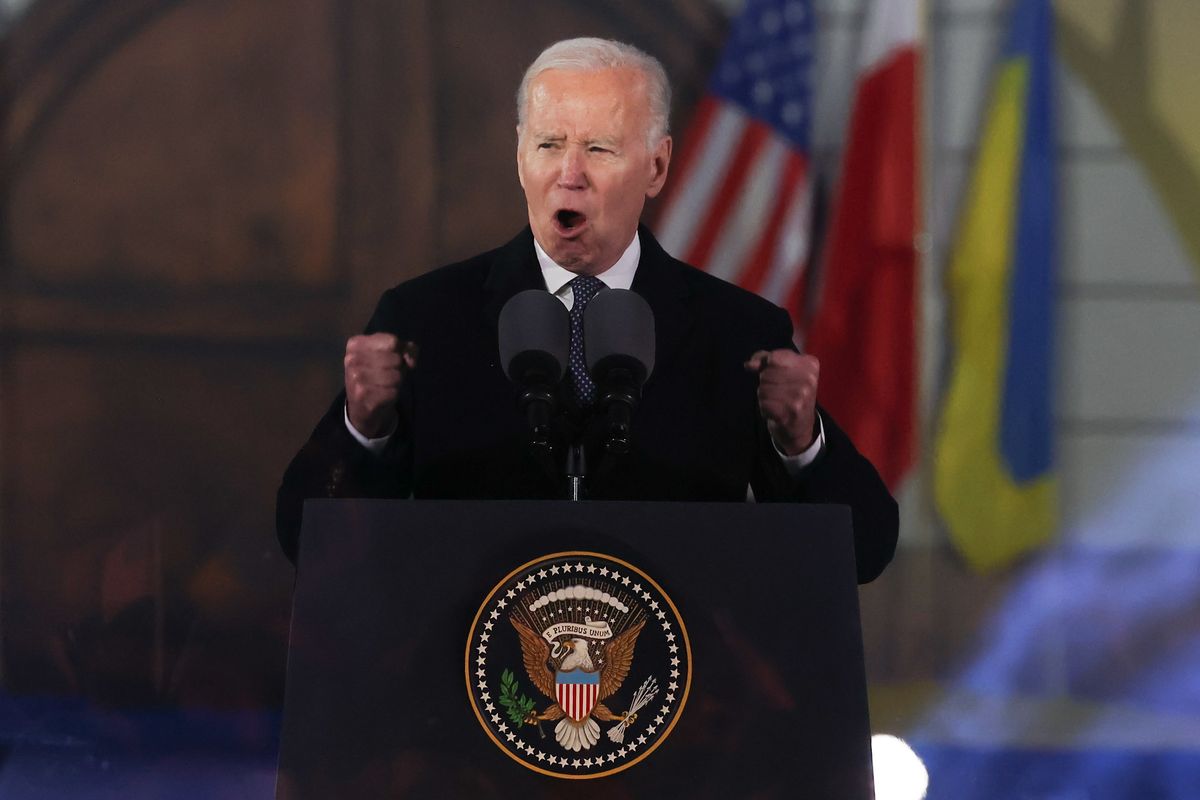Dueling speeches on Ukraine
A lot of players (and potential players) in the war on Ukraine have used the looming one-year anniversary of the invasion to position themselves for the months ahead. On Monday, President Vladimir Putin used his annual state of the nation address to insist that Russia would continue to fight a war he blames on Western aggression, and he announced that Russia would suspend participation in the New START nuclear arms control treaty, which binds Russia and the United States to limit their strategic nuclear stockpiles and to share information and access to weapons facilities. (Note: Inspections have already been suspended for more than a year, and Russia is in no position to finance a new arms race.) President Joe Biden, meanwhile, followed up his surprise visit with Volodymyr Zelensky in Kyiv by meeting in Warsaw with Polish President Andrzej Duda and asserting during a speech that “Appetites of the autocrat cannot be appeased. They must be opposed. Autocrats only understand one word: no, no, no.” In listing what he called Russia’s “atrocities,” he said its forces have “targeted civilians with death and destruction; used rape as a weapon of war… stolen Ukrainian children in an attempt to steal Ukraine's future, bombed train stations, maternity hospitals, schools and orphanages.” Chinese President Xi Jinping is expected to make news on Friday with a speech of his own in which he’ll lay out the specifics of a peace plan which, given the distance between the Russian and Ukrainian positions, has virtually no chance of success. The war grinds on.
Israel’s shekel drops amid judicial shakeup
A day after the Knesset, Israel’s parliament, passed the first stage of a bill reforming the judicial system, Israel’s currency, the shekel, dropped 2% against the greenback – the lowest value against the US dollar since 2020. Making matters worse, depreciation of the currency comes as the country is already grappling with sky-high inflation, with the central bank recently raising interest rates for the eighth time in less than a year. For weeks, Israeli bankers and business leaders have warned that Netanyahu government’s proposed changes to the judiciary, which include stripping the power of the High Court to override government legislation, would make the country less attractive for direct foreign investment. Indeed, HSBC – the world’s fourth largest bank – recently sent a letter to investors saying that the proposed reforms would harm both foreign investment and capital markets in Israel. This comes as a new poll found that 17% of Israelis are thinking about taking their savings out of Israel. Netanyahu and his right-wing cabinet say they aren’t backing down, but will that change if Israel’s economy continues to suffer and protesters continue to shout?
SCOTUS appears hesitant to crack down on social platforms
On Tuesday, the US Supreme Court began considering whether social platforms can be held responsible for harmful content promoted by their algorithms in Gonzalez v. Google, one of two cases the justices are hearing this week that may affect how social media platforms moderate content. But the justices made clear that they are unlikely to issue a sweeping decision limiting protections for YouTube, a Google subsidiary, any time soon, indicating that drawing the line on regulation is a slippery slope that should be considered by Congress. Some quick background: This case was brought by the family of Nohemi Gonzalez, a 23-year-old exchange student killed in an ISIS attack in November 2015 in Paris that also targeted the Bataclan theater. They argue that YouTube used data it collected on its users to push ISIS-related content to interested parties. At the crux of the legal battle is whether algorithms, which affect almost every online interaction, are legally protected under Section 230, a 1996 provision that says interactive service providers are not legally considered publishers of information posted by users on their sites. Both Republicans and Democrats have criticized the provision for different reasons, but efforts to revise it have stalled in Congress. Google, for its part, argues that it is legally absolved from content promoted on its platforms as it is not a publisher. The debate continues Wednesday when the Supreme Court will hear another case, Twitter v. Taamneh, looking at whether social platforms can be liable for aiding and abetting acts of international terrorism.







